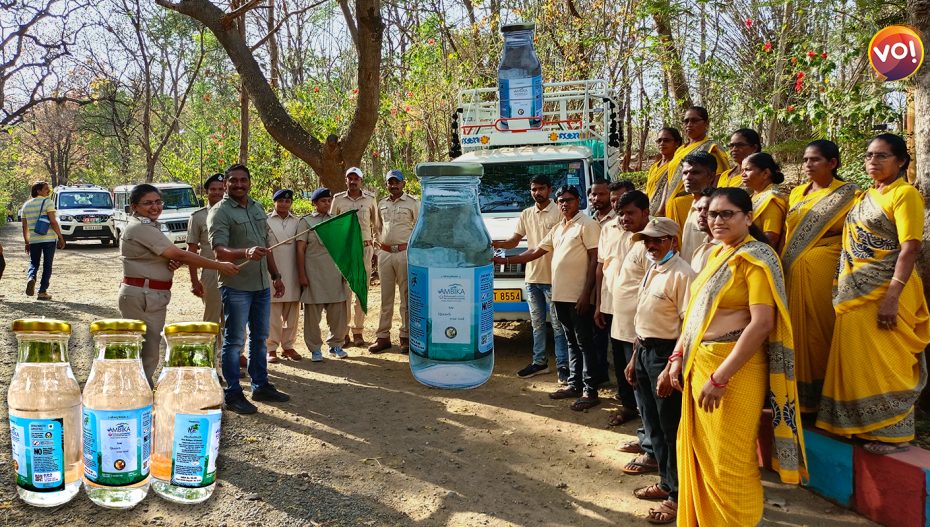Bottled water remains an area of concern given its “single use” dominance in tourist places. However, for Gujarat Forest Department, the change has already begun.
The “Padamdungari Eco-Tourism Center” is situated at a distance of about 30 kms from the town of Vyara and 8 kms from the village of Unnai near Surat in Gujarat. And here, only glass bottles are sold. Sealed within is the goodness of herbal water and yes, the plant is a “women only” enterprise. Their first big order of 11,000 bottles was hailed at the “Smart Cities National Conference” held in Surat on Monday.
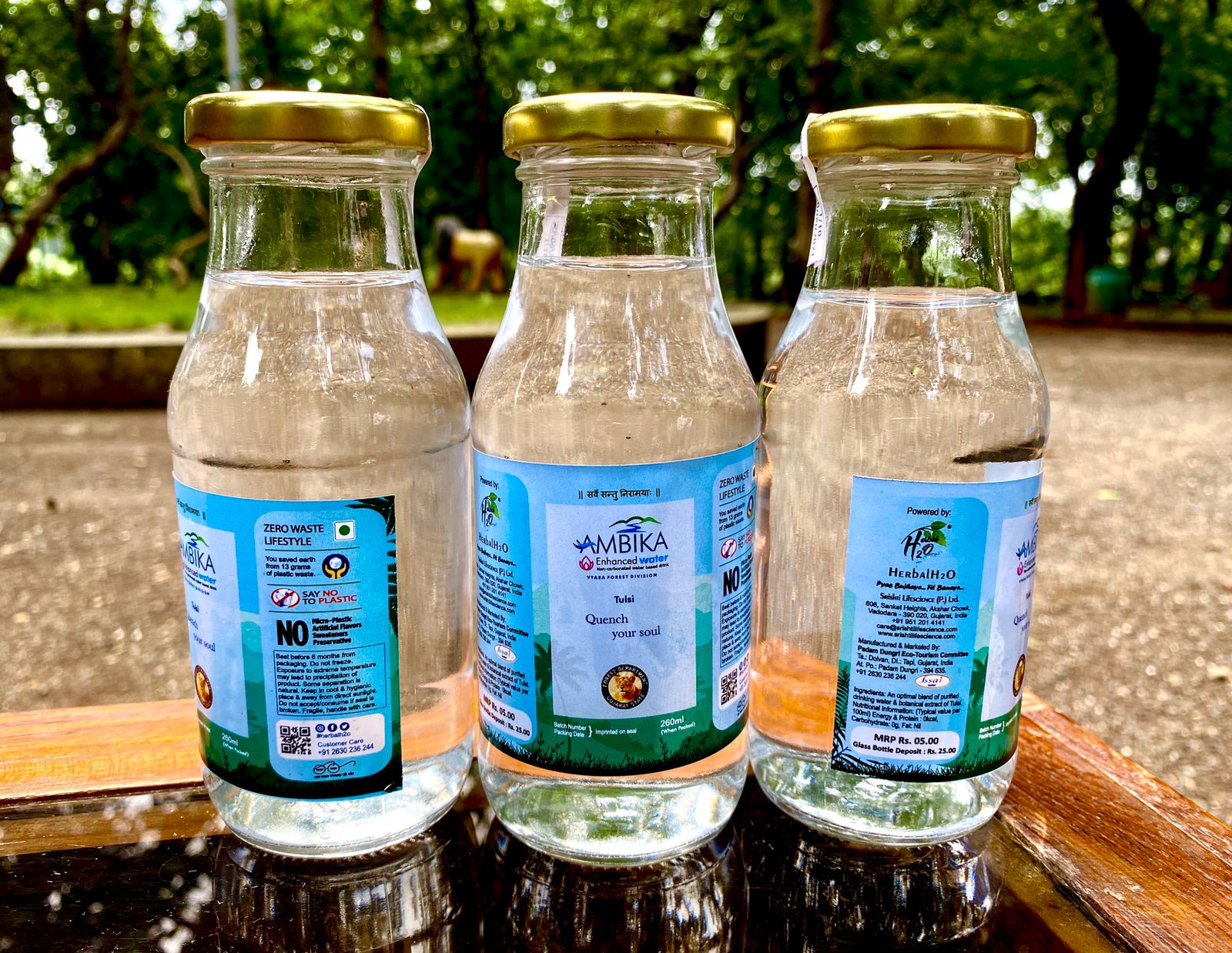
Seated amid the Unai forests range of Vyara, the plant has been an employment avenue for local tribals. Added, it has saved much time and man power in “cleaning up the plastic litter” left largely by tourists.
Explaining the motive behind, Ananḍ Kumar, Deputy Conservator of Forests, Vyara division, adds: “We started with the glass water bottle plant to cater to visitors at the eco-tourism site. However, the venture got a huge response from tourists and hoteliers. We have received a huge order from reputed hotels in Surat and supplied over 11,000 glass water bottles in last four days at the conference.”
According to team leader, Sarlaben Chaudhari, a strict vigil is maintained to no single-use plastic enters the campsite. For this, a special “plastic checking point” screens visitors and only once clear, tickets are issued.
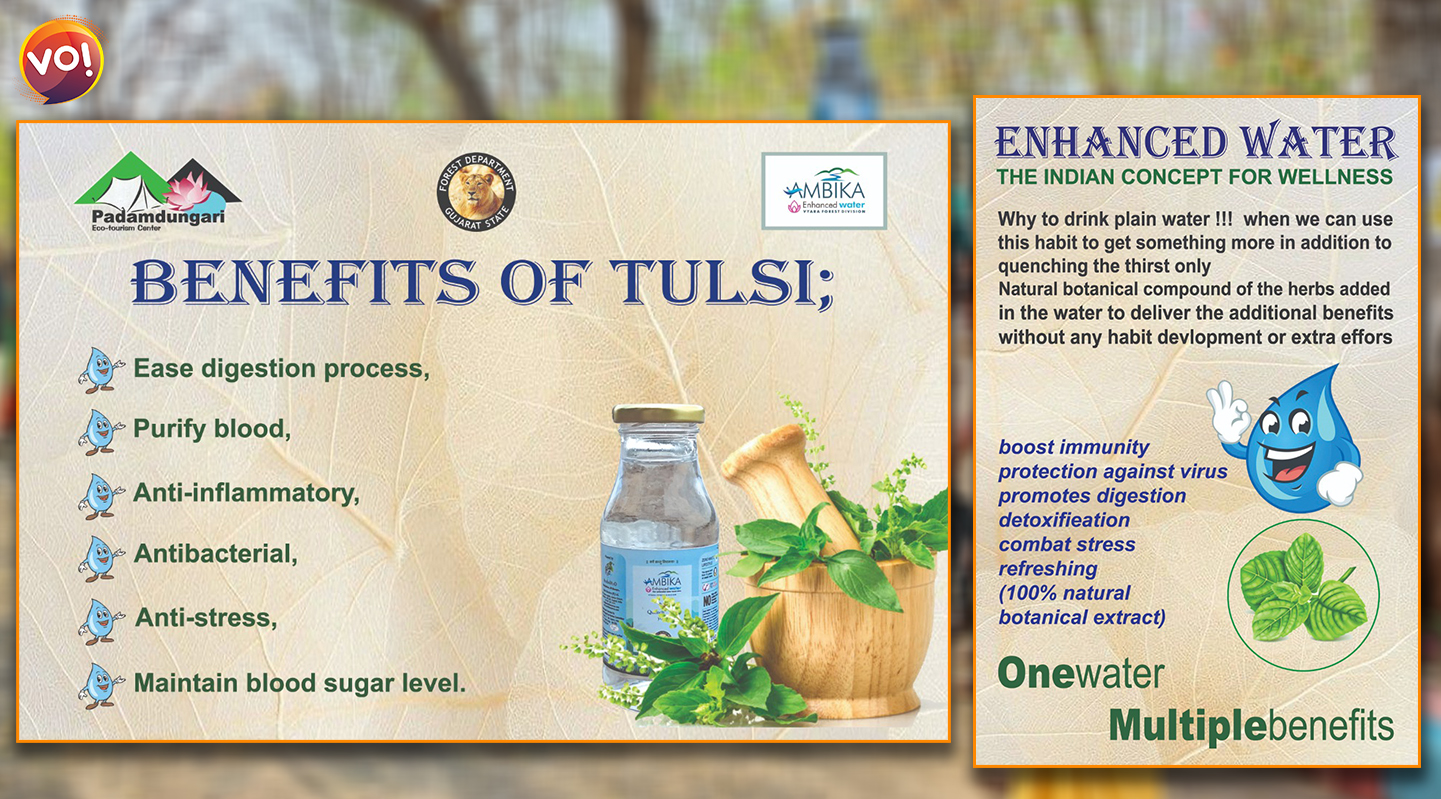
The center, located on the banks of Ambika, has emerged a popular tourist destination. Water is pumped in directly from the river and purified with cutting edge technology. Loaded with a mineral-rich content, the water does not need any “artificially added minerals.” The purification differs from the standard RO method and thus avoids water wastage to a large extent.
The river water goes through three stages of filtration: physical, chemical and biological purification. To fortify the natural goodness, the purified extract is boosted with herbs such as tulsi. The use-again glass bottles are priced at Rs 10 each.
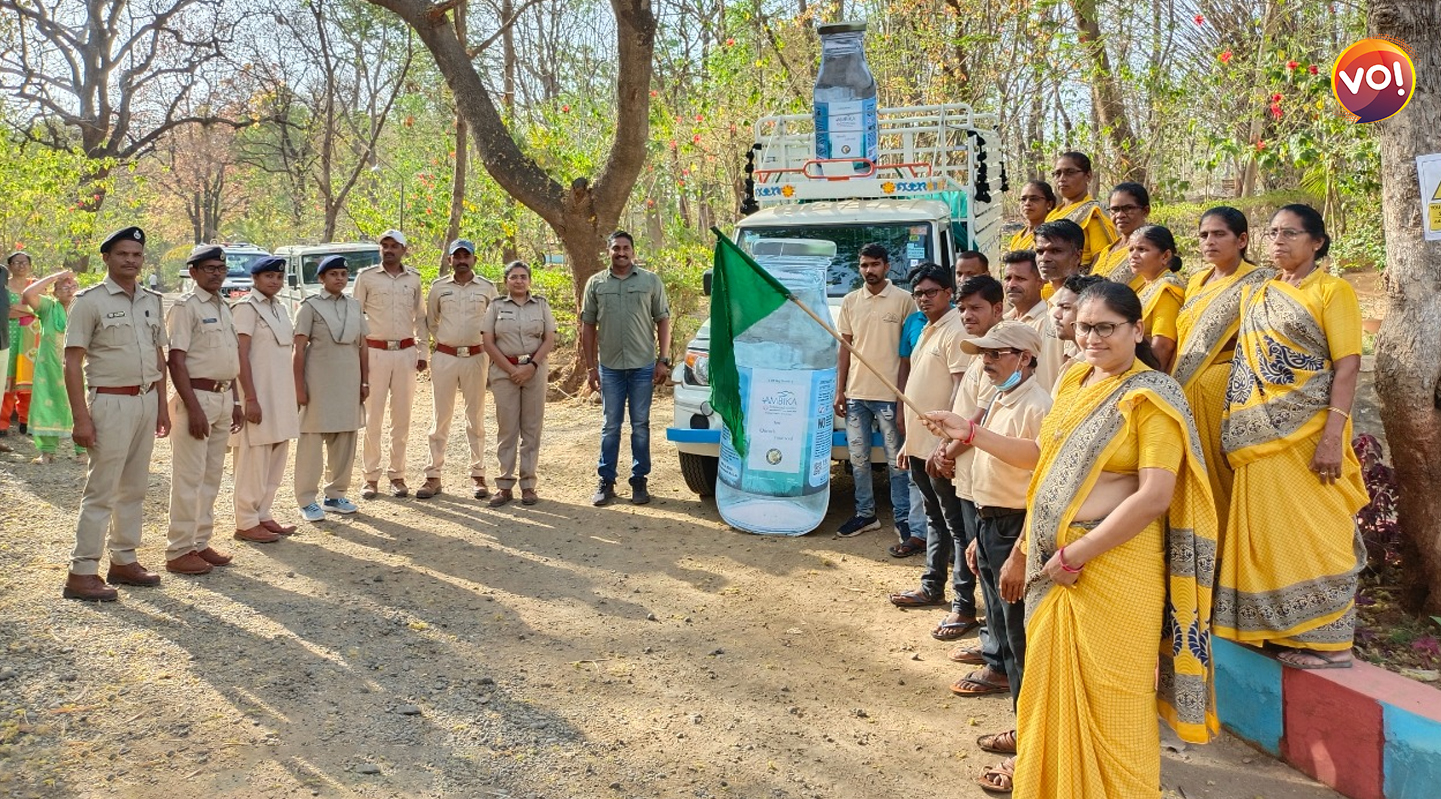
Each step, from operating the machine to distributing the packaged water, is handled by locals. “The sustainable endeavour has been a win-win situation, both for the locale and locals. We hope we succeed in eliminating plastic from the Padamdungari vicinity,’’ shared range forest officer Ruchi Dave.
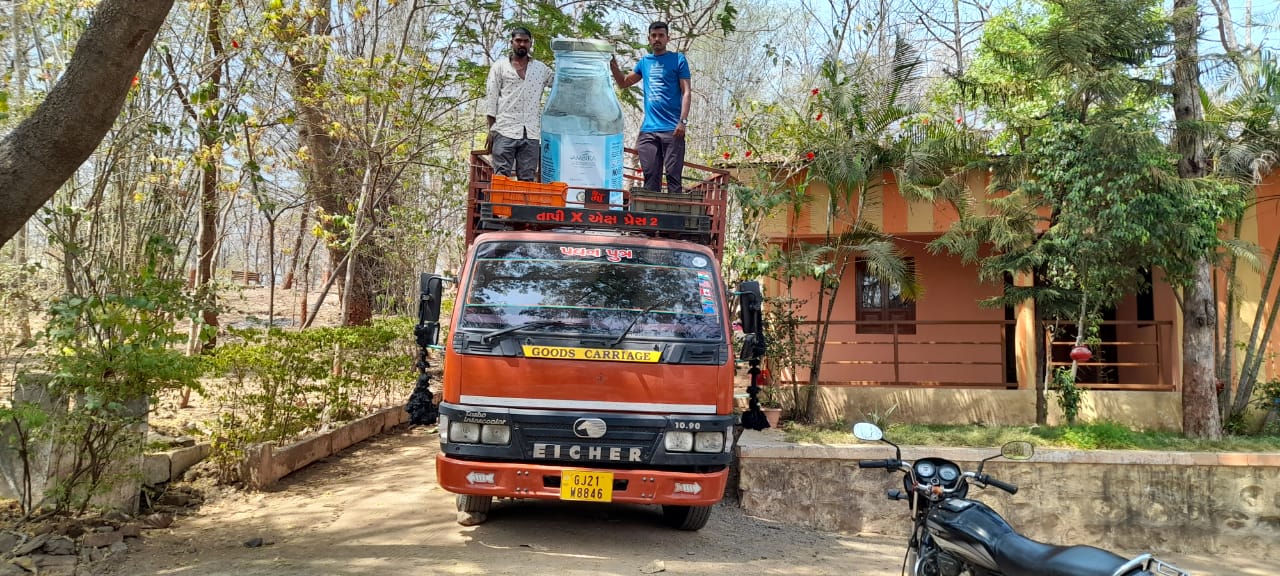
To model it as a resort vacation, tents and cottages are available. For groups, a dorm option has been set up. Added, an information kiosk at the entry point is meant to familiarise visitors with the bio-diversity site, flaura, fauna and tribal handicrafts. The in-house cafeteria churns tribal meals for an authentic experience. Padamdungari Ecotourism Center also houses a cactus and orchid house alongside India’s first ever walk-in insect observatory. This allows an up-close marvel at winged species such as butterflies, dragonflies, beetles, damselflies, mantises and fireflies. The pollinator-friendly flora makes sure that it abounds with the dense buzzing populace. The campsite has a wide array of adventure activities available such as zipline, archery and tree walking. There are also leisure activities such as boating, cycling and e-bikes.
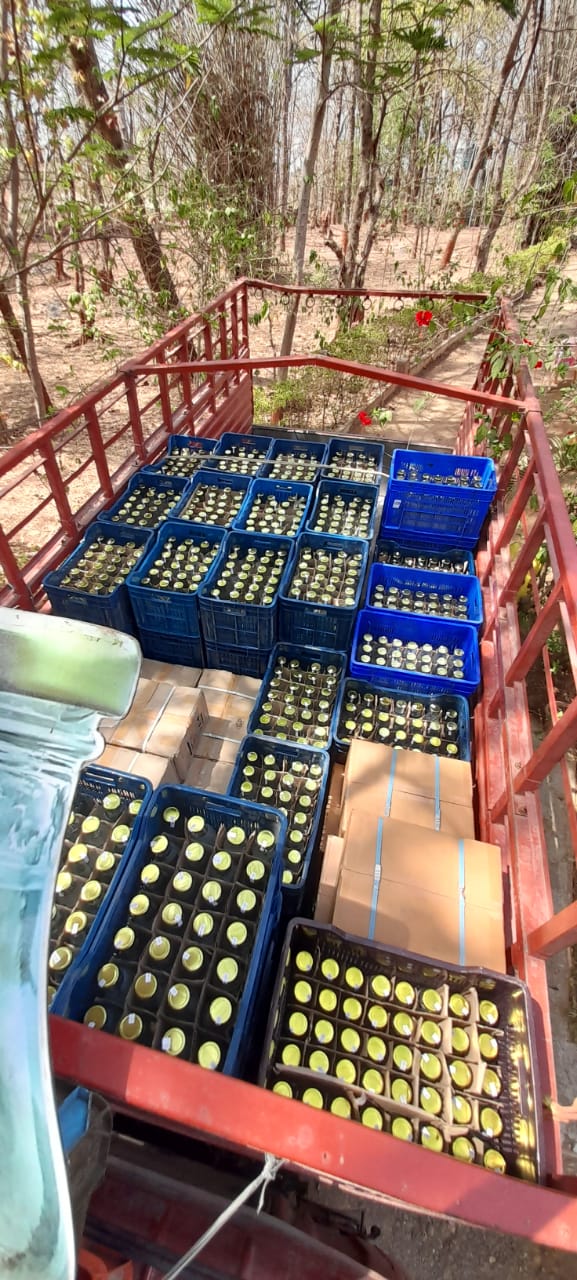
“Arogya Van” parked near the rear end, offers a brush with medicinal plants. For those interested, the center offers guided and fully equipped tours in the surrounding forests. This includes birdwatching, tree spotting, star gazing, reptile trails, butterfly watch and more.



